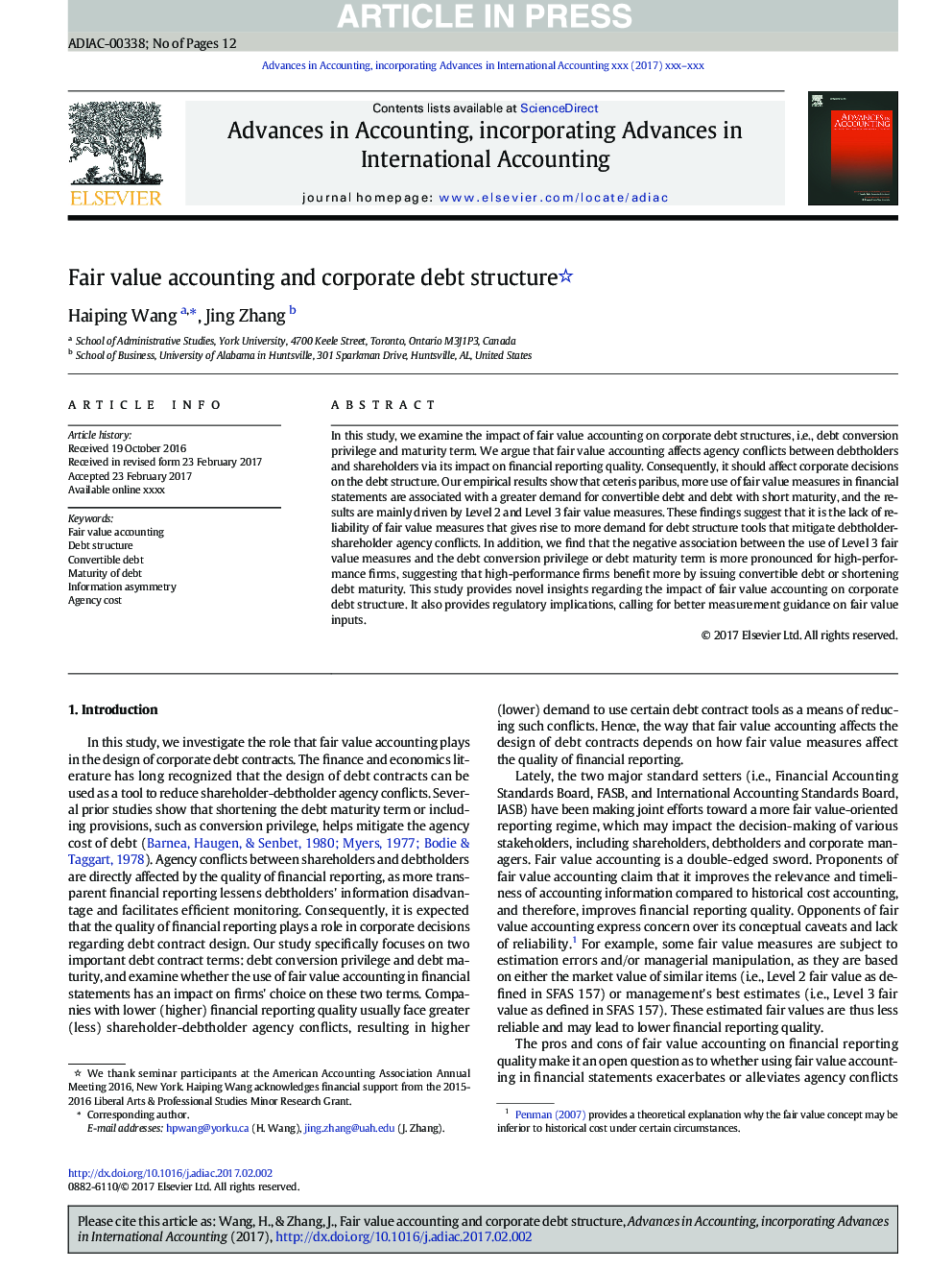| Article ID | Journal | Published Year | Pages | File Type |
|---|---|---|---|---|
| 7339742 | Advances in Accounting | 2017 | 12 Pages |
Abstract
In this study, we examine the impact of fair value accounting on corporate debt structures, i.e., debt conversion privilege and maturity term. We argue that fair value accounting affects agency conflicts between debtholders and shareholders via its impact on financial reporting quality. Consequently, it should affect corporate decisions on the debt structure. Our empirical results show that ceteris paribus, more use of fair value measures in financial statements are associated with a greater demand for convertible debt and debt with short maturity, and the results are mainly driven by Level 2 and Level 3 fair value measures. These findings suggest that it is the lack of reliability of fair value measures that gives rise to more demand for debt structure tools that mitigate debtholder-shareholder agency conflicts. In addition, we find that the negative association between the use of Level 3 fair value measures and the debt conversion privilege or debt maturity term is more pronounced for high-performance firms, suggesting that high-performance firms benefit more by issuing convertible debt or shortening debt maturity. This study provides novel insights regarding the impact of fair value accounting on corporate debt structure. It also provides regulatory implications, calling for better measurement guidance on fair value inputs.
Related Topics
Social Sciences and Humanities
Business, Management and Accounting
Accounting
Authors
Haiping Wang, Jing Zhang,
